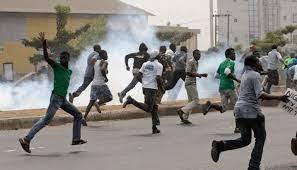The Islamic State of West Africa Province (ISWAP) has launched a bi-weekly digital newspaper in Hausa titled Wakiliyar Labarai, Ahmed Salkida, a journalist known to have access to Boko Haram, has reported.
He said the launch of the newspaper speaks to their ambitious strategic plan in sustaining widespread followership.
Hausa is the Chadic language spoken as a first language by some 44 million people, and a second language by another 20 million.
The total number of Hausa speakers, according to the Ethnologue, an annual language reference publication, is estimated at 63 million.
The newspaper has four sections, which it distributes to readers in PDF format on various social media platforms.
Section one of Wakiliyar Labarai covers ISWAP attacks against the Nigerian Army’s positions in Borno and Yobe. The newspaper published several claims of attacks in parts of the Northeast, some of which were never reported in mainstream media, notable amongst them was the attack in Askira, an area that was the exclusive preserve of ISWAP arch-rival, Abubakar Shekau.
The second section chronicles attacks by the group’s affiliate members in the region on military positions in Mali and Burkina Faso.
The third section features what is probably the first episode of what looks like a series on the ideology of the Islamic state with a review of the group’s activities in the region.
Section four features a fierce criticism of Abubakar Shekau’s ideology and activities in the region.
ISWAP accused him of indiscriminate killings of civilians, claiming that the threats he issued against the Minister of Communications, Dr. Isa Ali Pantami, and the killing of Shiekh Jafar Mahmud 13 years ago in Kano, was a ruse designed by Shekau to shift attention from ISWAP whenever his group is ignored.
Salkida also said ISWAP unit that coordinates media operations of IS affiliates in Mali, Niger and Burkina Faso based in the Lake Chad “is planning to launch a series of newspapers in French, Fulfulde and other languages widely spoken in West Africa to advance the group’s recruitment drive in the region.”



